Your support helps us to tell the story
As your White House correspondent, I ask the tough questions and seek the answers that matter.
Your support enables me to be in the room, pressing for transparency and accountability. Without your contributions, we wouldn’t have the resources to challenge those in power.
Your donation makes it possible for us to keep doing this important work, keeping you informed every step of the way to the November election

Andrew Feinberg
White House Correspondent
A playful and pudgy baby hippopotamus in Thailand who loves splashing about in water and enjoys belly rubs from her keeper has captivated the internet and left the zoo housing her struggling to manage large crowds jostling to see the latest global celebrity.
Thailand’s Khao Kheow Open Zoo in Chonburi, which started posting videos and photos online of Moo Deng, the two-month-old pygmy hippo, is now capitalising on her popularity.
Moo Deng became a meme-worthy internet sensation after zookeeper Atthapon Nundee posted her videos of bathing, playfully biting, and sleeping. Her snot bubbles have a separate fan base.
Because of the popularity of the hippo, whose name translates to “bouncy pork”, the zoo saw a boosted attendance over the past weekend. It drew more than 10,000 visitors, up from around the usual 3,000. Moo’s cuteness has also led to plans for a 24/7 livestream, though it is not yet up and running.
But her popularity has not come without problems. It has been reported that some visitors to the zoo are throwing water and other objects at the baby hippo to get her to react. The zoo’s director has now threatened legal action against misbehaving visitors.
Due to overcrowdeding, interactions with Moo Deng will now be limited to weekends, with each viewing lasting only five minutes, The Bangkok Post reported. Group sizes will be capped at 30 to 50 people to better manage crowds, according to zoo authorities.
Moo’s fame has also brought the spotlight back on past allegations of cruelty at crowded animal shows in Thai zoos amid a post-Covid tourism boost.
What is behind Moo Deng’s fame?
Moo Deng was born almost two months ago at the zoo in Chonburi. Only a month after her birth, her videos exploded on TikTok and social media quickly became obsessed.
Vulture wrote: “She has little teeny, tiny baby chompers, she’s perpetually wet, and her name means bouncy pork. It’s the ultimate recipe for internet cuteness.”
She is the Pookie of the moment.
The Associated Press described Moo Deng as having “the kind of face that launches a thousand memes”. Moo Deng in Thai is a type of meatball. It was reported that the name was chosen by fans through a social media poll, keeping in theme with her siblings: Moo Toon (stewed pork) and Moo Waan (sweet pork). The zoo also has a common hippo named Kha Moo (stewed pork leg).
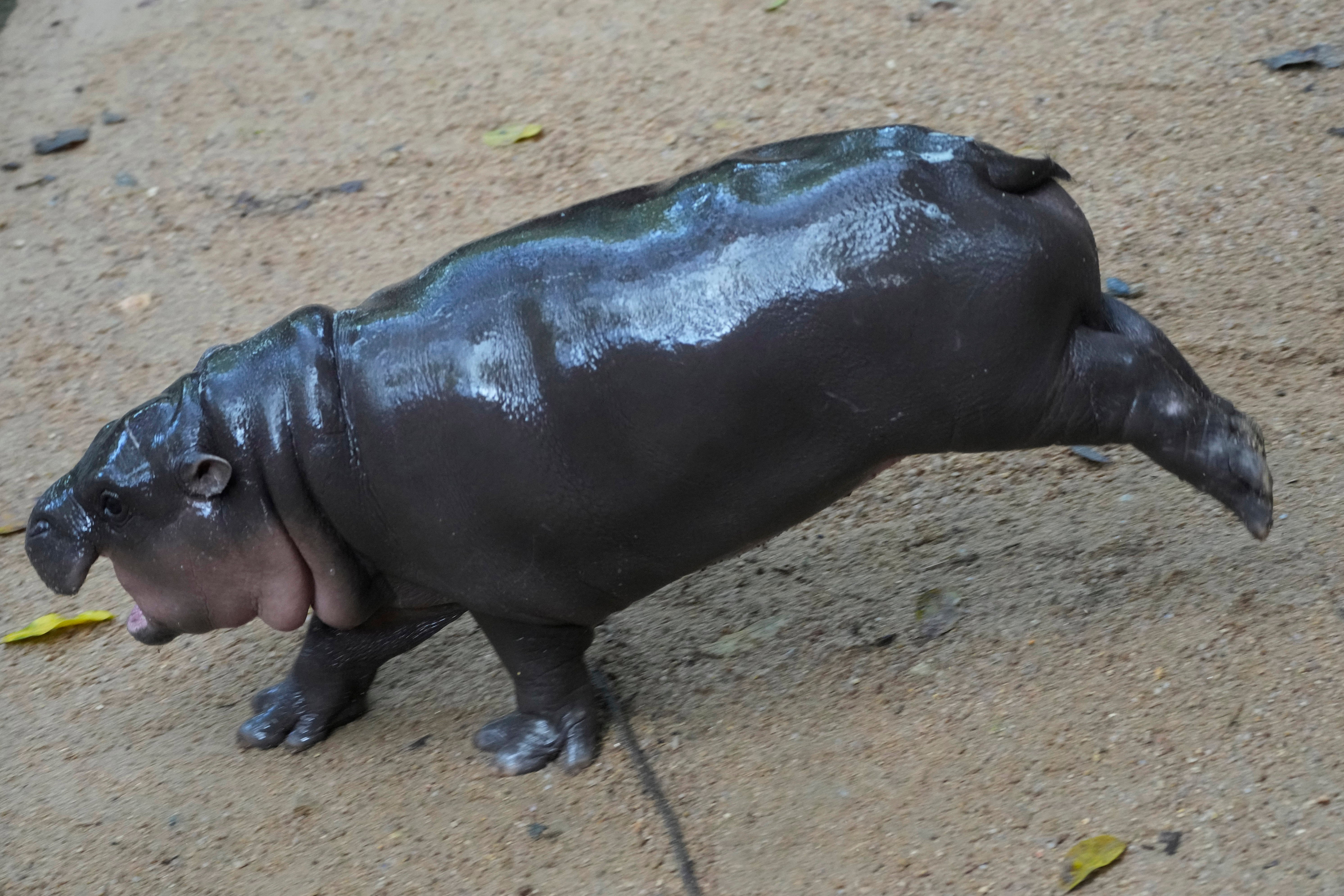
“She’s such a little lump. I want to ball her up and swallow her whole!” a Moo Deng fan Areeya Sripanya told AP on Thursday.
Brands are capitalising on Moo’s popularity
The cosmetic brand Sephora, in its advertising for blush products in Thailand, claims to offer Moo Deng’s “pink & peachy tone” cheeks.
A bakery in Bangkok announced on Facebook that it had to limit orders for its Moo Deng-inspired cakes due to overwhelming demand.
The Thai Embassy in Tokyo shared photos of Moo Deng on X and encouraged visitors to the zoo.
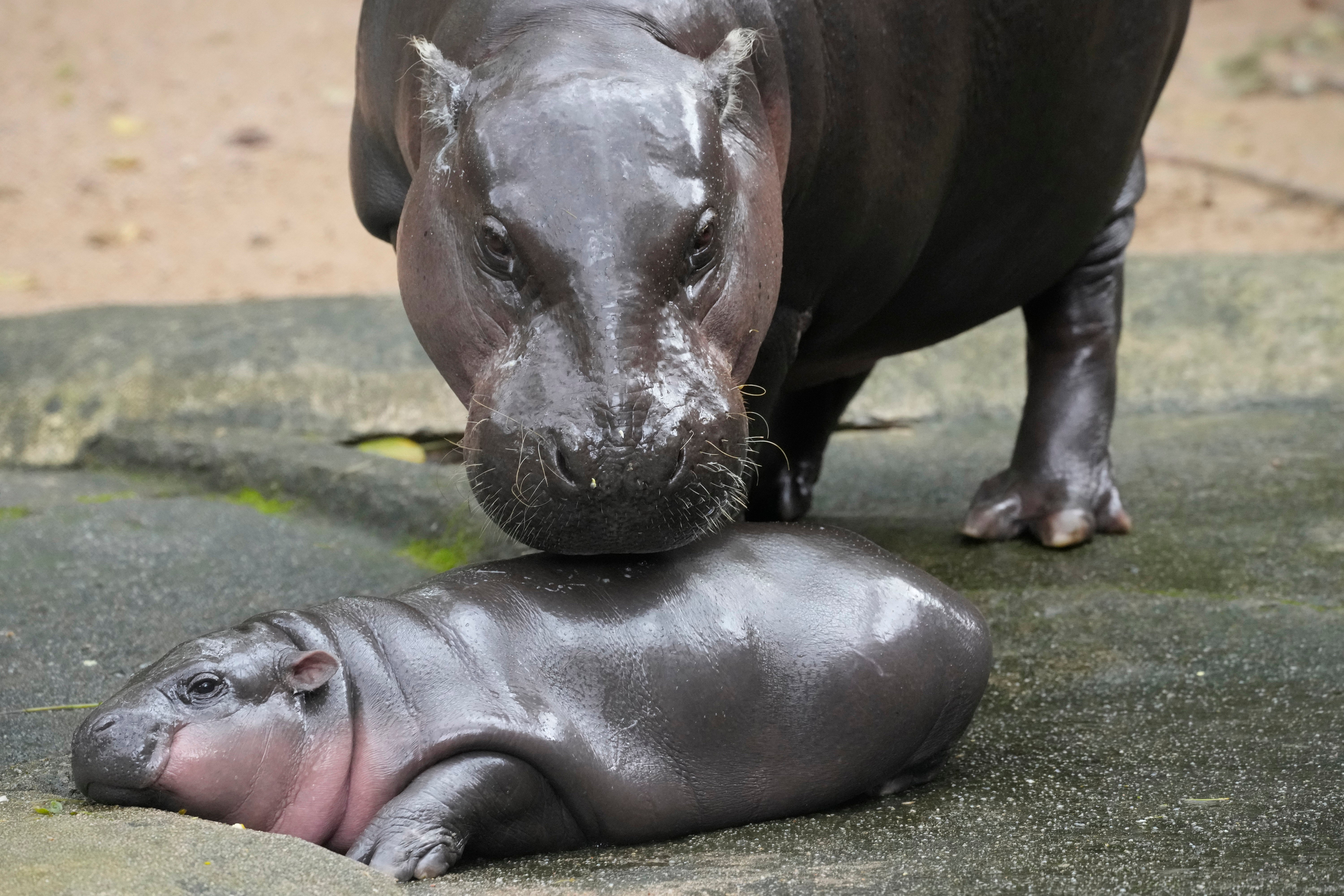
Moo Deng even made it to Time magazine. “She is an icon. She is a legend. She is the moment”, read the headline on a piece about her.
According to the zoo, Moo Deng’s mother, Jona, is 25 years old, and her father, Tony, is 24. She is their seventh baby born at the zoo.
Artists have created cartoons, cakes, and latte art inspired by her, and her image has even appeared in posts from the official account on social media platform X. She’s been featured in memes by teams like Germany’s FC Bayern, the Phoenix Suns, the Washington Commanders, and the New York Mets, often with simple photo edits placing her in various hats or human-like scenarios.
Given her rising fame, the zoo director Narongwit Chodchoi announced that they are in the process of copyrighting and trademarking “Moo Deng the hippo” to prevent unauthorised commercialisation.
“After we do this, we will have more income to support activities that will make the animals’ lives better,” he told the Associated Press.
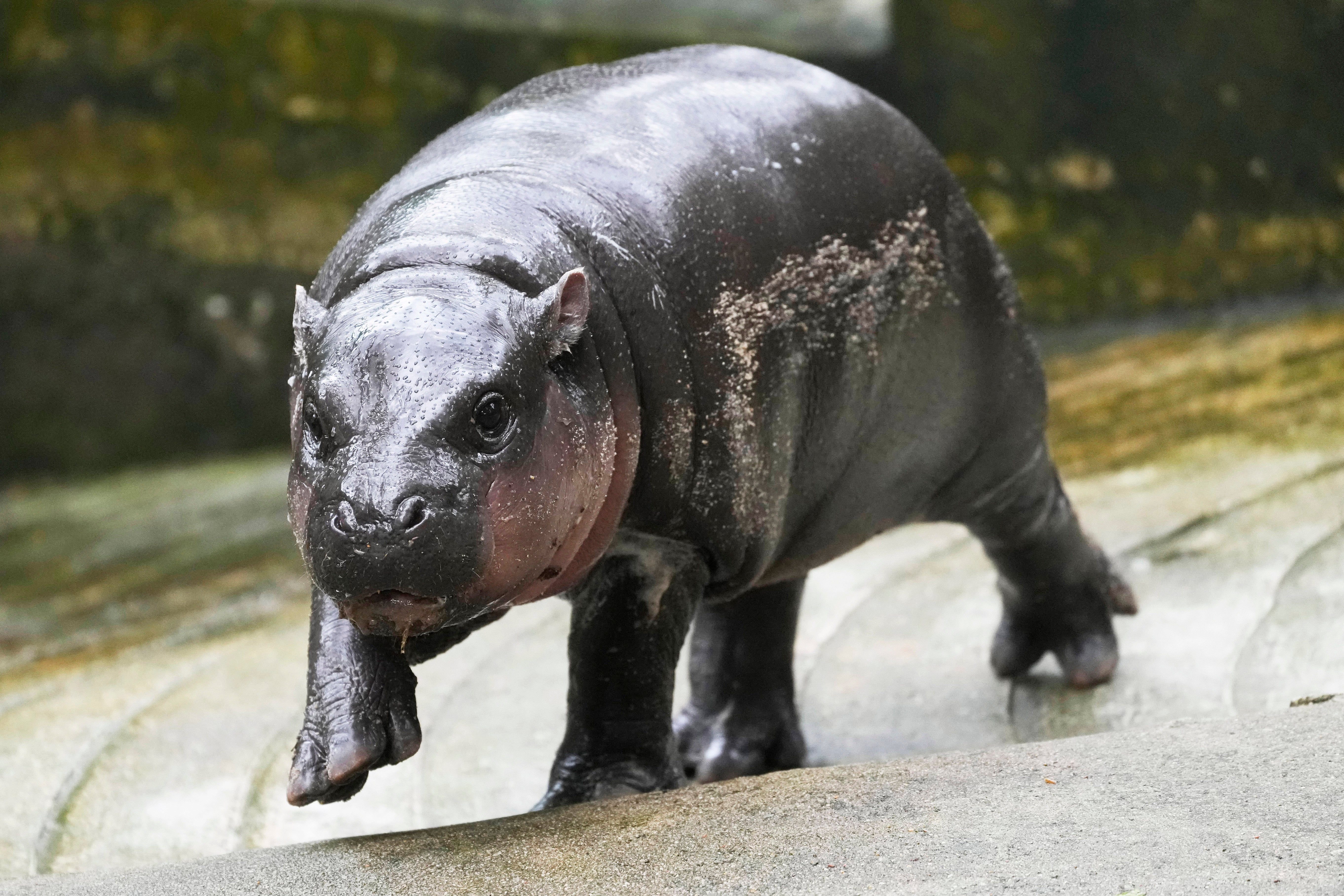
‘The kind of face that launches a thousand memes’
A TikTok video featuring Moo Deng’s caretaker playing with her has gone viral, amassing over 33 million views and more than 2 million likes.
Comments express delight, with one noting that the baby hippo “looks like he (sic) was just hatched”. Other videos of Moo Deng, including one of her mimicking her mother munching on veggies (Moo is still on a milk diet), have also garnered millions of views on TikTok and X.
“The moment I saw Moo-Deng born, I set a goal to make her famous, but I never expected it would spread abroad. I thought she could be famous in Thailand but not internationally,” Nundee, the caretaker who has worked at the zoo for eight years, told The Guardian.
Moo Deng is reportedly having a 24*7 live stream set up for her fans to enjoy her antics without having to visit the zoo where footfalls have increased – thanks to Moo Deng.
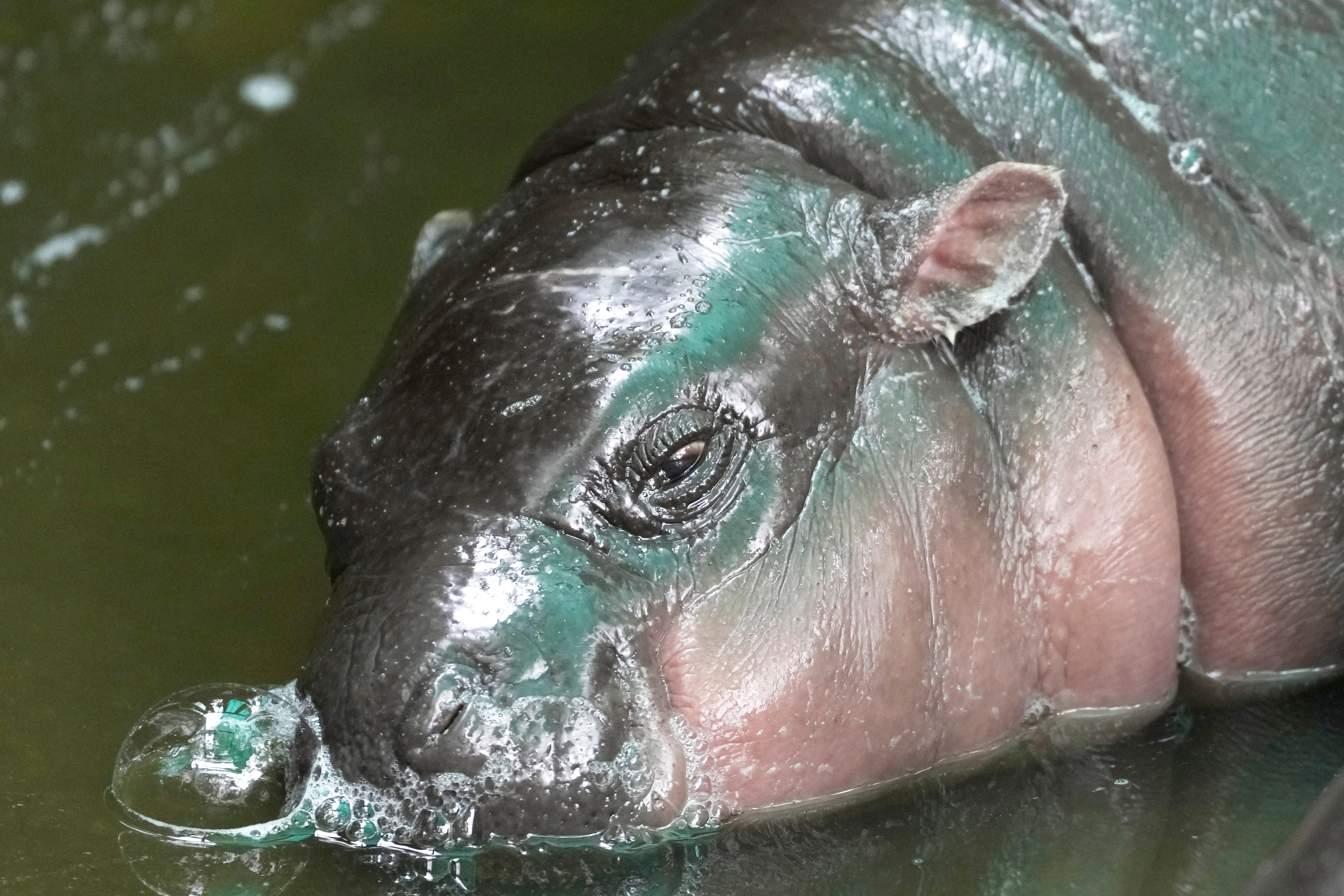
Visitors told to stop harassing Moo Deng
Moo Deng’s fame has attracted some overly enthusiastic visitors to the zoo. She typically wakes up to play for just two hours a day, but some videos have shown people splashing water or tossing objects to rouse her from sleep.
In response, the zoo has placed a warning sign at the hippo pit, prominently displayed in Thai, English, and Chinese, advising against throwing things at Moo Deng.
“These behaviours are not only cruel but also dangerous,” zoo director Chodchoi told reporters. “We must protect these animals and ensure that they have a safe and comfortable environment.”
To tackle these concerns, the zoo has now set up security cameras in Moo Deng’s habitat and alerted visitors about potential legal consequences for any rule violations.
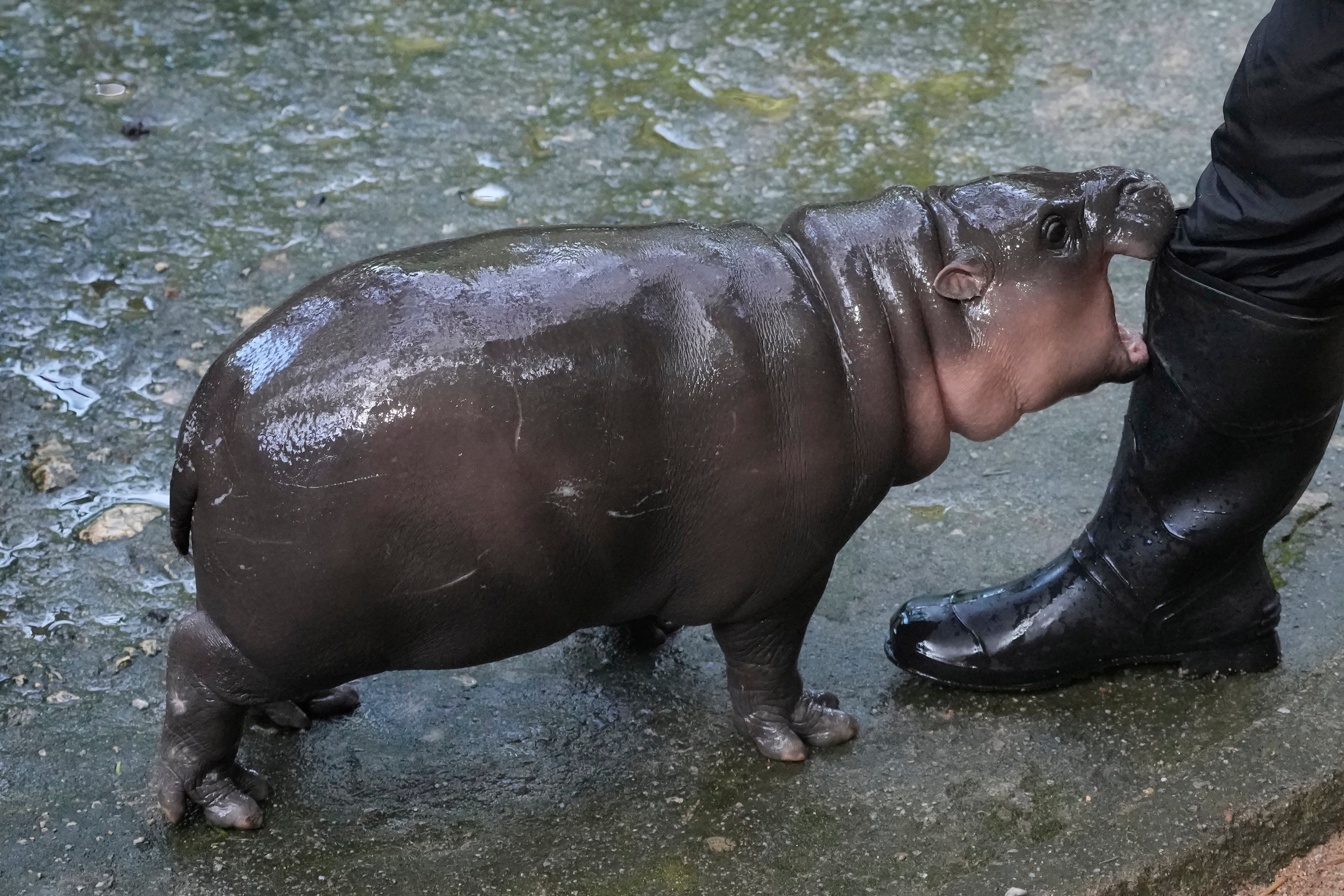
Moo Deng is from an endangered species
The pygmy hippo is an endangered species, with only 2,000-2,500 adults left, according to the IUCN. Their numbers are decreasing due to hunting for bushmeat and habitat destruction, reports note.
Smaller than common hippos, they are mainly found in West African countries like Liberia, Sierra Leone, Guinea, and Ivory Coast.
Moo Deng’s time in the spotlight is being used by the zoo to highlight the plight of the species. “I hope that the cuteness of Moo-Deng will raise awareness for people to come and learn about [the species],” Nundee was quoted as saying by The Guardian.
An adult pygmy hippo can live up to 50 years and can grow to about half the height of a full-sized hippo. In the wild, their diet mainly consists of grass, leaves, shoots, and fallen fruits.
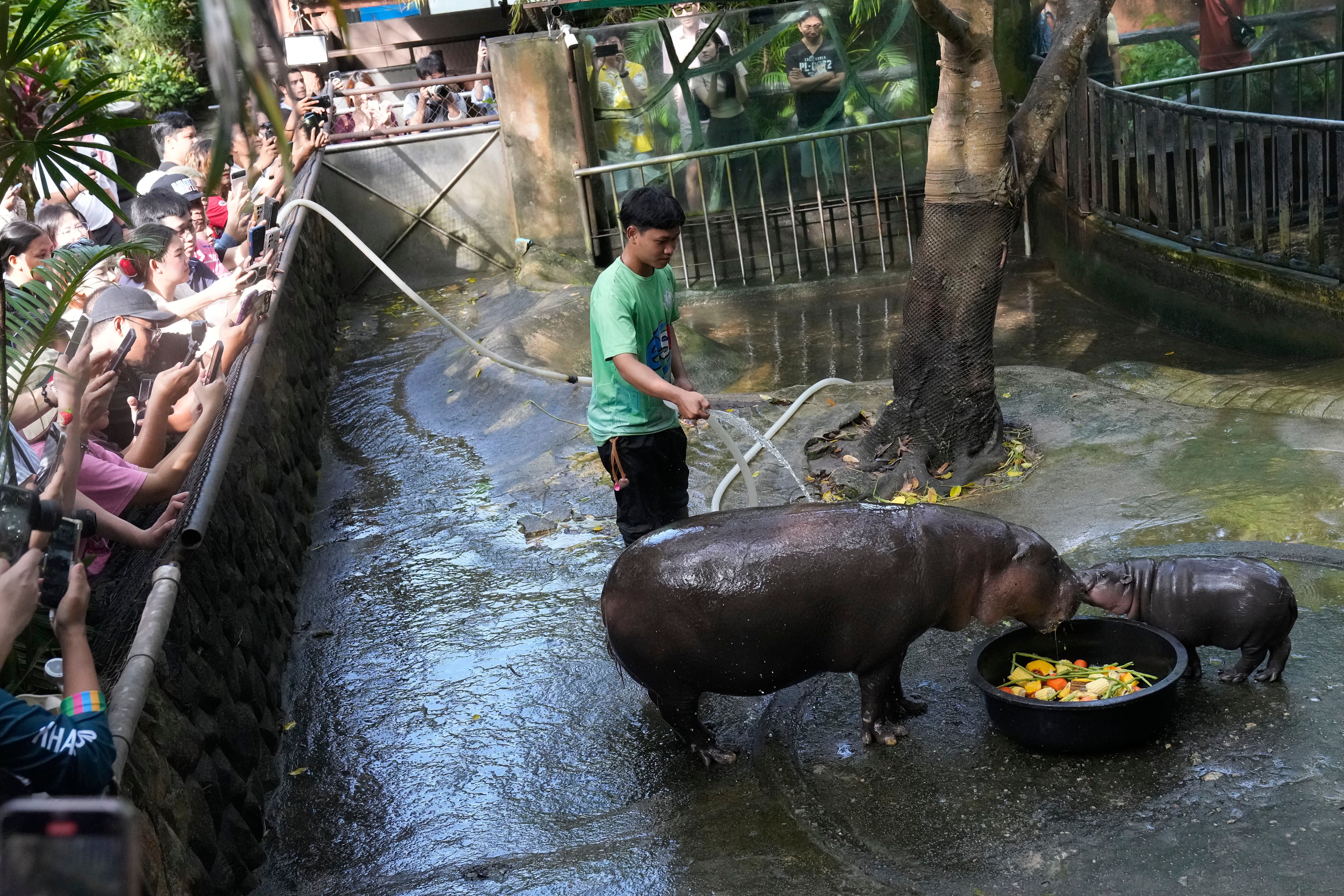
Science tries to explain Moo Deng’s fame
The Washington Post pointed out that research indicates especially cute animals possess “baby schema” traits – physical features resembling those of infants – that activate our instinct to care for them.
It noted that Moo Deng’s large eyes and adorable skin rolls evoke our nurturing instincts, even though she’s a pygmy hippo.
“When we see these infantile features – those big eyes, large foreheads, small chins, and pudgy bodies – we interpret that as helplessness and as dependency, and it motivates us to care for them,” Daniel Kruger, a research scientist in evolutionary psychology at the University of Michigan and the State University of New York at Buffalo, was quoted as saying.
“That little rolly-polly face is wonderfully squishable. She is often seen screeching and bouncing around like a tusked Roomba. Moo Deng is, effectively, an exotic, somewhat slimy English bulldog. What is there not to love about that?” gushed a Mashable piece.
“We get to anthropomorphise a personality unto them as a collective. We see open-mouthed, blurry snaps of Moo Deng, and we get to make her a mischievous, cherubic little character. In the absence of, you know, animals being able to express themselves, we do it for them. It’s sort of what we do with our own pets. Together, we make an adorable creation.”
Khao Kheow Open Zoo’s past
In 2021, the Khao Kheow Open Zoo met with backlash over its elephant swimming shows. It featured performances where elephants swim, dance, and perform tricks while visitors watch through a glass enclosure.
The zoo has defended the shows, despite social media outrage calling it an example of animal cruelty.
The controversy intensified after a photo titled “Elephant in the Room” by Adam Oswell won an award at the Wildlife Photographer of the Year Awards 2021, organised by the Natural History Museum in London.
In an interview, the zoo’s then director, Tewin Rattanawongsawat, defended the shows, saying that swimming is a natural behaviour for elephants and that they are not forced to perform, as no mahouts ride them.
He said that the elephants swim freely and receive food rewards after each show.
Animal rights activists said that the practice was cruel and urged the Chonburi governor at the time to shut down the zoo and transfer the elephants to a sanctuary.
“No elephant would exhibit these types of behaviours in the wild, so in order to make them do so for the crowds, trainers use cruel techniques to make sure their charges will do what they say when they say it,” a petition posted on Care2 noted.
The zoo’s website still shows the timing for elephant swimming shows on its homepage.
The Independent has reached out to Khao Kheow Open Zoo for comment.
In 2018 Attaporn Sriheran, the then-zoo director, again defended the elephant swimming shows. “The show is considered exercise for the elephants. Normally they go into pools to play with water anyway,” Sriheran told Khaosod English.
“The zoo then designed another pool for the elephants to swim and at the same time allows children and visitors to learn about their behaviour as well.”
The Khao Kheow Open Zoo also advertises a “Penguin Parade” on its website. The show involves penguins waddling up in a queue on a ramp for the visitors.
Since the Covid-19 pandemic, as tourism in Thailand rebounded, zoos in the country have come under renewed scrutiny for their treatment of animals and overall welfare standards.

